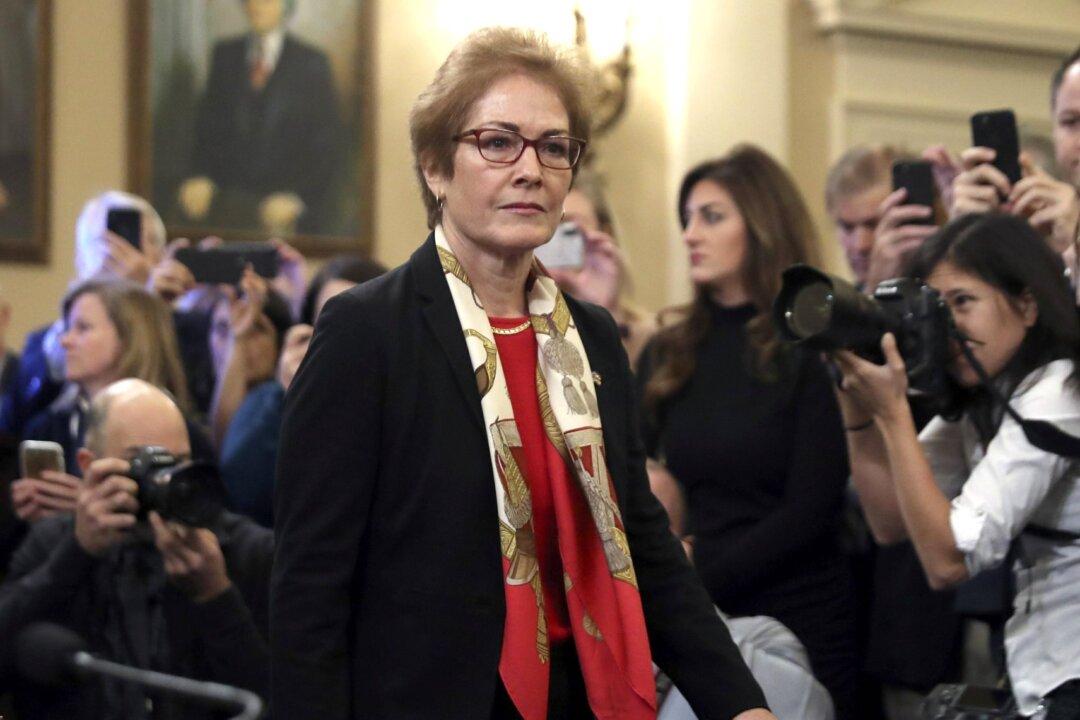Former U.S. Ambassador to Ukraine Marie Yovanovitch earlier this year urged the ouster of Ukraine’s top anti-corruption prosecutor amid a heated national election, raising concerns that the U.S. embassy was meddling in Ukraine’s internal affairs.
In a speech on March 5, Yovanovitch called for the firing of Ukraine’s special anti-corruption prosecutor, Nazar Kholodnytsky. Yovanovitch issued the demand just six weeks prior to Ukraine’s presidential election.





